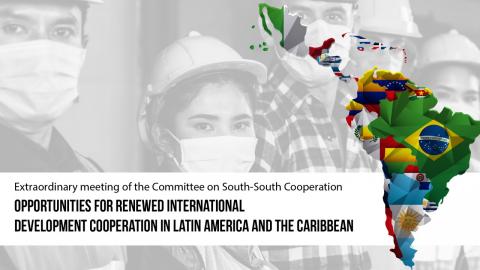News
Digitalization processes create opportunities for new jobs in existing companies with "traditional" business models and in companies with new business models, organized through digital platforms. For these opportunities to be taken advantage of, the workers need to have the required skills and the institutions should ensure the working conditions.
However, many of the new jobs, mainly platform jobs, represent challenges in order for digitalization to be inclusive and to make progress with SDGs compliance, specifically, with the generation of decent work. Public institutions should react fast to prevent new jobs from becoming precarious and widening the gaps that characterize Latin American economies.
The multidisciplinary team of Cluster 2 of the ECLAC-BMZ/giz Cooperation Program has made progress in three areas:
- Analyzing the characteristics of emerging occupations and improving the generation of information about them;
- Adjusting social and labor regulations to cover platform occupations;
- Strengthening vocational training institutions in the identification of new qualification demands and adjustment of the training offer.
In this context, and in coordination with the Costa Rican Ministry of Labor and Social Security (MTSS), two consulting studies were commissioned on the first two aspects mentioned: improving knowledge about emerging jobs resulting from the digital transformations in Costa Rica and providing input for the debate on reforms of labor and social legislation to ensure an adequate protection of platform workers, without wasting the production and employment generation potential of the new business models.
The virtual workshop on June 4th aimed at presenting these studies and their results to the representatives of Costa Rican public institutions related to the subject.
The opening was attended by Daniel Titelman, Director of ECLAC's Economic Development Division, Torsten Goehler, Minister-Counselor of the German Embassy in Costa Rica, and the Minister of Labor and Social Security, Geannina Dinarte Romero.
The consultants' presentations were commented on by representatives of the National Institute of Statistics and Censuses, the State of the Nation Project and the International Labor Organization.
To close, Natalia Alvarez Rojas, Vice-Minister of Labor and Social Security, highlighted the relevance of the event for the necessary advances in aspects such as the analysis and social and labor regulation of emerging occupations, while ECLAC committed to promptly disseminating the studies presented at the workshop.
In total, up to 87 people were connected, including the Minister and Vice-Ministers of the MTSS, as well as the Ministry of Economy, Industry and Commerce and the Joint Institute of Social Assistance.


